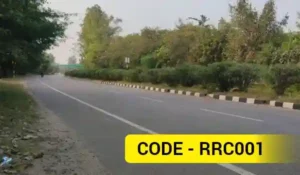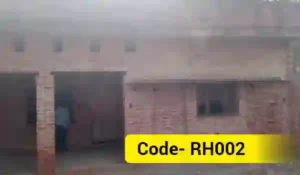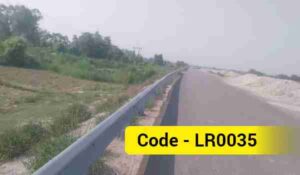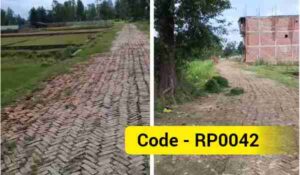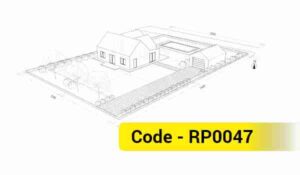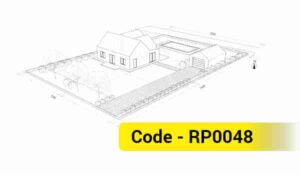Laws Governing the Sale of Land by Scheduled Caste Landowners to General Category in Uttar Pradesh
In Uttar Pradesh, the process of a Scheduled Caste (SC) landowner selling their land to a General Category individual is a sensitive and legally complex matter. This process is governed by the Uttar Pradesh Zamindari Abolition and Land Reforms Act, 1950 (Section 157-A) and the Uttar Pradesh Revenue Code, 2006 (Section 98). In this blog, we will explain the law in simple and clear language, incorporating the latest updates as of July 2025, and referencing relevant news articles and official sources.

Legal Background: Transfer of Scheduled Caste Land
In Uttar Pradesh, strict laws are in place to protect the land of Scheduled Caste landowners. The primary objective is to prevent the forcible or fraudulent transfer of their land due to economic or social pressures. Under Section 157-A, it is mandatory for a Scheduled Caste landowner to obtain written permission from the District Magistrate (DM) before selling, gifting, mortgaging, or leasing their land to a General Category or non-Scheduled Caste individual. Any transfer without such permission is considered illegal and void, and the land may be returned to the original owner or vested with the government.
District Magistrate’s Permission: Conditions and Process
1. Conditions for Permission
The District Magistrate grants permission for land transfer only under specific circumstances:
- Minimum Land Retention: After selling the land, the SC landowner must retain at least 3.125 acres (5 Bigha) of agricultural land. If less land remains, permission will not be granted.
- Special Circumstances:
- No legal heir in the family.
- The landowner has permanently settled in another city or state.
- Financial need due to a serious illness of a family member, supported by hospital expense estimates and relevant documents.
- Price Above Circle Rate: The buyer must pay a price higher than the circle rate to ensure a fair transaction.
2. Application Process
Since 2023, this process has been fully digitized. SC landowners must follow these steps:
- Online Application: Submit the application on https://bor.up.nic.in.
- Documents: Upload required documents such as khatauni, khasra, proof of illness (if applicable), and other relevant papers.
- Verification Process: The Tehsildar or Naib Tehsildar conducts an inquiry, and the Sub-Divisional Magistrate (SDM) forwards the report to the District Magistrate.
- Decision Timeline: The District Magistrate must decide within 45 days to grant or deny permission.
Read More…
- Uttar Pradesh Building Construction and Development By-Laws 2025
- Laws Governing the Sale of Land by Scheduled Caste Landowners to General Category in Uttar Pradesh
- Understanding Section 80 (Section 143) of the Uttar Pradesh Revenue Code, 2006
- Succession Laws in Uttar Pradesh
- 12 Years of Possession (Adverse Possession) and the Property is Yours? The Complete Story of the Limitation Act and Supreme Court Rulings!
- Land Acquisition Act 2013: The Real Story of Farmers’ Rights!
Proposed Changes in 2023: What Happened?
In March 2023, some news articles, such as those on aajtak.in and amarujala.com, claimed that the Uttar Pradesh government proposed to remove the requirement for District Magistrate’s permission for SC/ST land transfers. The aim was to simplify land transactions under the Township Policy-2023. However, the opposition strongly criticized this move, arguing it would encourage land mafias and increase exploitation of SC/ST communities.
Update as of July, 2025: No official confirmation of this change has been found on the Uttar Pradesh Revenue Department website (bor.up.nic.in) or other reliable sources. The requirement for District Magistrate’s permission remains mandatory. It is likely that the proposed change was considered in a limited context but was not implemented widely.
2025 Digital Advancements
According to kncs.in (July, 2025), land registry and related processes in Uttar Pradesh are now fully digitized. Key updates include:
- Bhulekh Portal: upbhulekh.gov.in provides real-time access to khasra, khatauni, and land maps, helping buyers and sellers verify ownership and land status.
- Digital Registry: All documents are uploaded online and authenticated with digital signatures.
- Mutation (Namantaran): Post-registry mutation is mandatory. Without mutation, the buyer is not considered the legal owner. Mutation fees range from ₹100 to ₹500.
Precautions for Buyers and Sellers
For Buyers:
- Ensure the seller has written permission from the District Magistrate.
- Verify land documents on upbhulekh.gov.in.
- Calculate circle rates and registry fees using igrsup.gov.in.
- Conduct title verification to avoid disputes.
For Sellers:
- Prepare all necessary documents (khasra, khatauni, proof of illness, etc.).
- Apply online at bor.up.nic.in.
- If fraud or coercion occurs, immediately contact the Sub-Divisional Magistrate (SDM).
Legal Advice:
In complex cases, consult a lawyer specializing in land laws to ensure a fully legal and secure transaction.
Purpose of the Law
This law aims to protect the land of Scheduled Caste individuals from being forcibly or fraudulently transferred. If a non-SC individual acquires land through deceit or coercion, the SC landowner can file a complaint with the SDM. After investigation, the transfer can be canceled, and the land returned to the original owner.
Conclusion
As of July, 2025, it remains mandatory for a Scheduled Caste landowner in Uttar Pradesh to obtain prior permission from the District Magistrate to sell land to a General Category individual. This permission is granted subject to conditions such as retaining a minimum of 3.125 acres (5 Bigha) of land, no legal heirs, permanent relocation, or serious illness. The process has been streamlined online at https://bor.up.nic.in, with a 45-day decision timeline. Although a proposal to remove the permission requirement surfaced in 2023, it has not been implemented.
If you plan to buy or sell land, contact your local Tehsil office or a lawyer. Verify all documents on upbhulekh.gov.in to ensure a legally sound transaction.
Get in Touch: If you have specific questions or a case to discuss, leave a comment or reach out to your local revenue department.
Note: This blog is for general information purposes. Consult a legal expert before taking any legal steps

